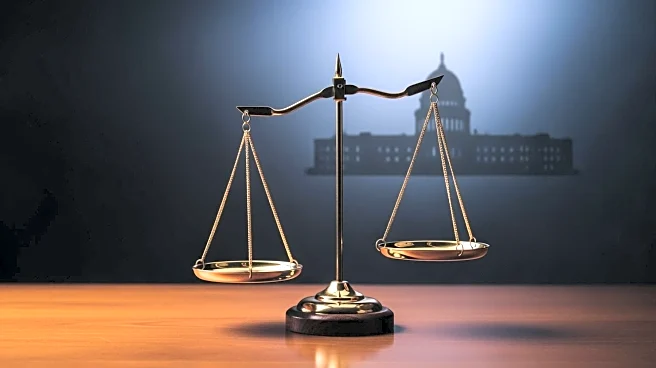What's Happening?
The ongoing government shutdown, which began on October 1, is causing significant strain on the federal judiciary and the criminal defense bar. Thousands of lawyers on the Criminal Justice Act panel, who represent indigent defendants, have been working
without pay for over three months due to a lapse in funding. The judiciary is expected to run out of money soon, potentially leading to furloughs of court staff for the first time in decades. Federal public defenders and CJA panel attorneys are crucial for ensuring defendants have access to legal representation, but the shutdown threatens their ability to continue working effectively.
Why It's Important?
The funding crisis in the federal judiciary highlights the broader impact of the government shutdown on the U.S. legal system. The inability to pay defense attorneys and court staff could disrupt criminal cases and compromise defendants' constitutional rights to representation. This situation underscores the importance of stable funding for the judiciary and raises concerns about the ethical implications for lawyers working without pay. The shutdown's impact on the legal system may prompt calls for policy changes to ensure adequate resources and support for defense attorneys and court operations.
What's Next?
As the judiciary runs out of funds, court staff may face furloughs, and defense attorneys may struggle to continue representing clients. The shutdown's impact on legal proceedings could lead to delays in criminal cases and challenges to defendants' rights. Advocacy groups and legal professionals may push for legislative action to address the funding crisis and ensure the judiciary can operate effectively. The situation may also lead to increased scrutiny of government shutdowns and their impact on essential services.
Beyond the Headlines
The funding lapse in the judiciary raises questions about the ethical responsibilities of lawyers working without pay and the potential impact on their ability to represent clients effectively. The situation highlights the need for reforms to ensure stable funding for the judiciary and support for defense attorneys. Long-term, this crisis may influence discussions on the balance between government operations and the protection of constitutional rights in the legal system.

















